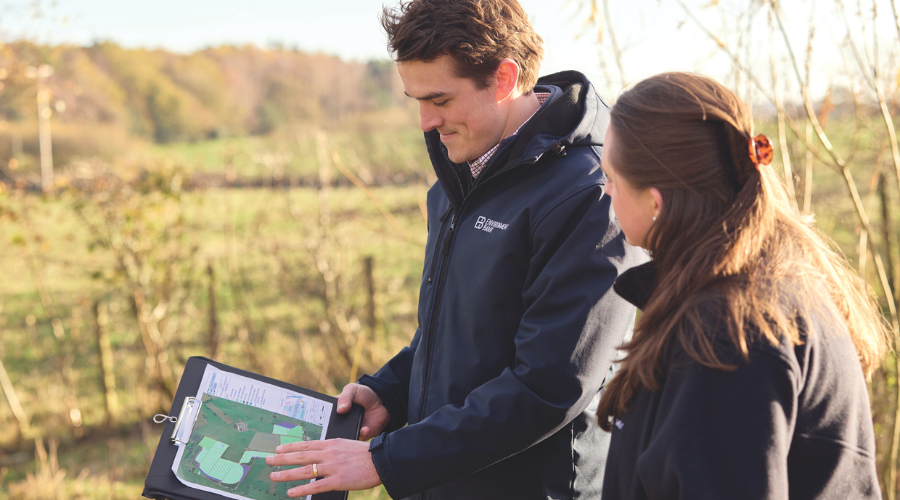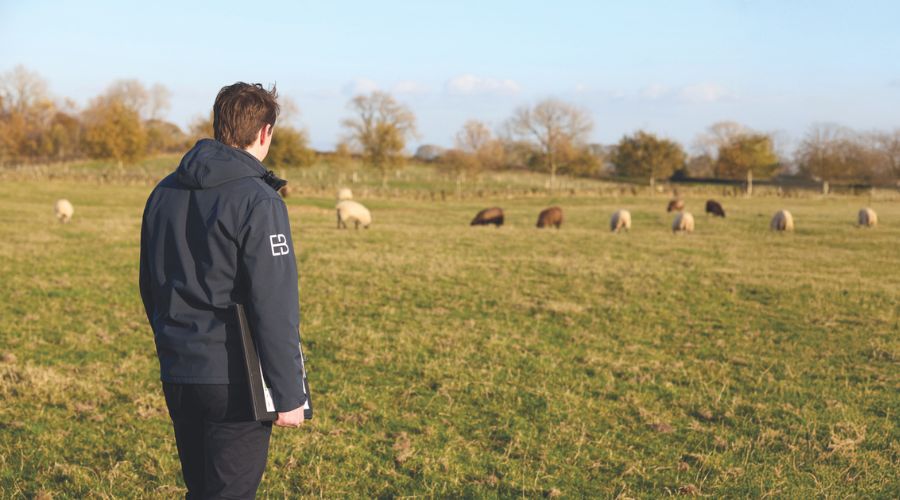Q&A – How farms can benefit from BNG Habitat Banks
7th April 2025
Land manager Rory Hodgson explores the benefits of getting involved in BNG with Environment Bank. He explains how many farmers are getting involved with BNG Habitat Banks, and how this can support farming.

Why is BNG becoming so popular?
With BNG, farmers can bank a parcel of their land for the next 30 years and receive a guaranteed annual income that’s unaffected by fluctuating input costs.
It can be a bit of a lifeline for those that are struggling financially and a great opportunity for those that are simply looking for an additional revenue stream.
Almost all the farmers we work with really want to see wildlife and nature thrive on their land, and a BNG Habitat Bank gives them a great way to do that.
Habitat Banks can be managed using livestock grazing and hay cuts which means that the focus remains agricultural, so BNG can really fit into a wider land business.
How can a BNG Habitat Bank support agriculture?
If you look at the current trends in farming, you’ll see a real push towards regenerative agriculture.
This involves considering things like soil health, air quality, and water quality – and managing the impact farming has on all these things to find the most sustainable approach.
A Habitat Bank takes a parcel of land where the soil is initially poor in terms of nutrients and introduces new habitats which can improve the health of the soil and promote biodiversity, wildlife, and pollinators – all great for regenerative agriculture.
Very small changes can make quite a big difference in biodiversity, especially where the land was managed intensively before.
How does Environment Bank partner with farmers?
We take out a long-term lease on a land parcel to create a Habitat Bank.
We pay the landowner an annual rent and, in most circumstances, also pay them an annual fee to help manage the habitats.
The design for each Habitat Bank is led primarily by ecology, but it also incorporates the landowner’s perspective.
We always listen to them to understand which habitats they think could be beneficial because they know the land better than anyone.
We like to incorporate grazing livestock or hay cuts directly into the management plan so the farmer can continue to generate income through traditional means and receive management payments from us.

What are the benefits of working with Environment Bank?
Our model removes almost all the additional cost and risk that’s typically associated with BNG.
We cover the cost of habitat creation works. If we’re creating wildflower meadows, we’ll pay for the reseeding.
If we’re creating ponds, we will take care of any planning permissions and pay for the excavation.
Our ecologists ensure all the habitats are established correctly and provide annual reports to the local planning authority, and our sales team generate revenue by selling the Biodiversity Units to developers for BNG.
So, provided they complete their management activities every year as planned, our landowners receive their lease and management payments without having to worry about anything else involved in BNG.
What do you find most rewarding about your role?
It seems like there’s a lot of things working against farmers right now so, honestly, the most rewarding thing for me is the help that we can provide to them through our partnerships.
The highlight is when a new Habitat Bank goes live because we’ll have supported the farmer from the beginning.
A lot of our Habitat Banks are still in their early days, but our farmers are already enjoying seeing an increase in biodiversity on their land and we’ll see even more over the coming years.
What would you say to anyone considering BNG for their land?
There might be a certain area of your land that isn’t the most productive where a Habitat Bank might be a great diversification option.
Even if you’re a little bit on the fence, it might be worth getting us to come out for a chat about how it works. We take on anywhere from 25–250 acres, depending on location and habitat creation opportunities.
We do a desk-based review and visit the land for an ecology assessment at no cost to the landowner, so we can talk in a bit more detail about the type of habitats we could create without you having to commit.
Find out more about BNG Habitat Banks.
Read more business news.
